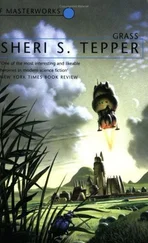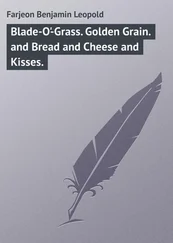I can only suspect what induced Konny to cheat: the desire for an unambiguous enemy. But the story about the dog I have straight from Mother as actual fact; even as a child she was fixated on German shepherds. Zahn had had his Hassan on board for years. Whether on deck or in the mess, the officer always appeared with his dog in tow. Mother said, “From down on the dock — where we had to wait before they let us on — we could see clearly a captain or some such standing up there at the railing with that pooch of his and looking down at us refugees. The dog was almost exactly like our Harras…”
She could also describe the situation on the dock: “You wouldn't believe the pushing and shoving, total confusion. In the beginning they were keeping a neat list — everyone who came up the gangway — but then the paper ran out…” So the numbers will forever remain uncertain. But what do numbers tell us? Numbers are never accurate. In the end you always have to guess.
Among the 6,600 persons recorded were a good 5,000 refugees. But from 28 January on, additional hordes of people, who were no longer being counted, stormed up the gangplank. Was it two or three thousand, destined to remain numberless and nameless? Approximately that number of extra meal cards was printed on board and distributed by the girls of the naval auxiliary, who had been pressed into service. It didn't matter, and still doesn't, if there were a few hundred more or less. No one has precise figures. It is not known either how many baby carriages were stowed in the hold; and it can only be estimated that in the end the ship held close to four and a half thousand infants, children, and youths.
Finally, when no more was possible, a few last wounded and a final squad of women's auxiliaries were squeezed in, the young girls being billeted in the emptied swimming pool on E deck, below the ship's water-line, because no more cabins were available, and all the lounges were already filled with mattresses.
This specific location must be repeated and emphasized, because my son breathed not a word about anything connected with the naval auxiliaries and the swimming pool as a death trap. Only when he waxed indignant on his Web site about rapes, did he speak, almost rhapsodically, of the “young maidens whose innocence was supposed to be protected by the ship from the depredations of the Russian beast…”
When I came upon this nonsense, I again took action, but without identifying myself as his father. When his chat room opened, I lobbed in my objections: “Your maidens in distress were wearing uniforms, attractive ones, even. Knee-length grayish-blue skirts and close-fitting jackets. Their caps, with the imperial eagle gripping the swastika in front, perched rakishly atop their hairdos. All of them, whether innocent or not, had undergone military training and had sworn the loyalty oath to their Führer…”
But my son didn't care to communicate with me. Only with his invented adversary, whom he lectured in the tone of a classic racist: “As a Jew you will never be able to grasp how much the violation of German girls and women by Kalmucks, Tatars, and other Mongol types still hurts. But what would you Jews know about purity of the blood!”
That couldn't be something Mother had drummed into him. Or could it? Not so long ago, when I had visited her in Grosser Dreesch and had laid on her coffee table my fairly objective article on the controversy over the proposed Holocaust memorial in Berlin, she told me about someone who once turned up at her uncles carpentry shop, “a fat kid with freckles” who drew a fairly good likeness of the dog lying chained up there: “He was a Yid, and he had some weird notions. But he was only half Jewish, so my papa said. And he said it out loud, too, before he kicked that Yid — Amsel was his name — out of our courtyard…”
On the morning of the thirtieth, Mother finally managed to get on board, with her parents. “We was just in the nick of time…” They lost some of their luggage in the process. At noon the order arrived for the Gustloff raise anchor and cast off. Hundreds were left behind on the pier.
“Mama and Papa were ashamed of me, of course, with my big belly. Every time one of the other refugees asked about me, Mama would say, 'Her fiances fighting at the front.' Or: 'There was supposed to be a long-distance wedding with her fiance, who's fighting on the western front. If only he hasn't been killed.' But to me all they talked about was the shame. It was good they separated us right away on the ship. Mama and Papa had to go way down into the belly of the ship, where there was still a bit of room left. I was sent up to the maternity ward…”
But we haven't reached that point yet. Again I have to do a little crab walk in order to move forward: the previous day, and then all through a long night, the Pokriefkes sat on their too many suitcases and bundles, in the midst of a crowd of refugees, most of them exhausted from the long trek. They came from the Kurische Nehrung, from the Samland Peninsula, from Masuria. A last batch had fled from nearby Elbing; Russian tanks had rolled through, but the fighting for control seemed to continue. Also more and more women and children from Danzig, Zoppot, and Gotenhafen crowded in among the horse-drawn carts, farm wagons, baby carriages, and many sleighs. Mother told me about abandoned dogs who weren't allowed on board and because they were hungry made the piers unsafe. The East Prussian farm horses had been unharnessed and either turned over to the Wehrmacht units in the city or sent to the slaughterhouse. Mother didn't know exactly. But it was only the dogs she felt compassion for: “They bayed all night long like wolves…”
When the Pokriefkes left Eisenstrasse, their relatives the Liebenaus refused to pack up and follow the helper's family. The master carpenter was too attached to his workbenches, his circular and band saws, the finishing machine, the stacks of lumber in the shed, and apartment house 19, which belonged to him. His son Harry, whom Mother implicated temporarily as my possible father, had already received his call-up notice the previous fall. Somewhere, along one of the many retreating fronts, he must have been a radio operator or a member of the armored infantry.
After the war I learned that the Poles had expelled my possible grandfather and his wife, like all Germans who had remained in the region. We heard that both of them died not long afterward in the West, one right after the other, most likely in Lüneburg — he probably out of sorrow for his lost shop and all the window and door hardware stored in the apartment house's cellar. The watchdog, in whose kennel Mother is supposed to have spent a week as a child, was dead long since; before the war someone — she says, “A pal of the Yid's” — poisoned him.
It can be assumed that the Pokriefkes came aboard with one of the last lots, allowed on because their daughter was visibly pregnant. With August Pokriefke might there have been trouble; the MPs patrolling the pier could have pulled him out as fit for the Volkssturm. But since he, as Mother said, was only “a half-pint,” he managed to bluff his way through. At the end, supervision became porous in any case. Conditions were chaotic. Children ended up on board without their mothers. And mothers lost hold of their children's hands in the shoving on the gangway and couldn't save them from being pushed over the edge and disappearing into the water between ship's hull and the wall of the pier. It did no good to scream.
The Pokriefkes might have found room on the steamers Oceania and Antonio Delfino instead, although they too were overloaded with refugees. These two ships were also tied up at the Gotenhafen-Oxhöft pier, known as the Quay of Good Hope; and the two medium-sized transports did reach their destinations, Kiel and Copenhagen, safely. But Erna Pokriefke was “determined” to get onto the Gustloff, “come hell or high water,” because she had such happy memories of her KDF cruise to the Norwegian fjords on what was in those days a gleaming white ship. She had stuffed into her luggage the photo album with snapshots from that trip.
Читать дальше











